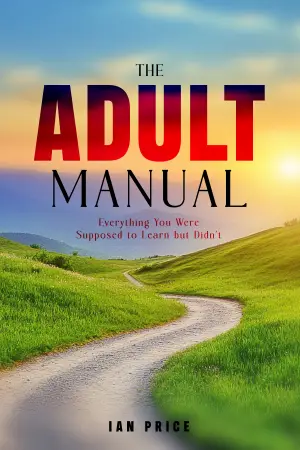I recently delved into This Naked Mind by Annie Grace, a book that takes a profound look at our relationship with alcohol, and I must say, it was a transformative experience. As a passionate reader with a keen interest in personal development and self-help literature, I was intrigued by the blend of psychology and cultural critique that the book promised. I wanted to understand the deeper psychological factors influencing our drinking behaviors and how societal norms shape our dependence on alcohol.
Grace’s book is groundbreaking for a reason; it challenges ingrained beliefs about alcohol use, exposing the psychological and neurological underpinnings that contribute to our dependencies. The way she lays out the cultural influences that reinforce these behaviors is both eye-opening and impactful. Many readers, myself included, have often questioned our drinking habits, worrying about their impact on our health and well-being. In this context, Grace offers a refreshing perspective: that abstaining from alcohol doesn’t necessarily mean sacrificing joy or social connection.
One of the significant positives that resonated with me was Grace’s ability to deconstruct the myths around alcohol. Many reviews echoed this sentiment, such as Abigail’s experience of finding freedom, which is echoed throughout the pages. Grace encourages readers to reframe their relationship with alcohol, empowering them to choose sobriety without the dread of deprivation. It’s liberating to see the notion that life can indeed be joyful and fulfilling without alcohol being central to it.
Another aspect that stood out was Grace’s candid sharing of her personal journey and insights, making the narrative relatable and grounded. Her writing is filled with clarity and humor, which effortlessly draws you in and keeps you engaged. Many readers have noted how this storytelling style helps demystify the often stigmatized narratives surrounding alcohol and addiction.
Of course, the book isn’t without its drawbacks. Some reviewers pointed out that certain scientific claims could be controversial or perhaps oversimplified. For someone like me who appreciates rigorous arguments, it was slightly discomforting to see occasional inconsistencies in her rhetoric. There are moments where Grace asserts that alcoholism is not a disease, which can be problematic when juxtaposed with other statements that imply it is. This could lead to confusion for those who may not be fully committed or understanding of their relationship with alcohol.
Furthermore, some readers have mentioned that while the book excels in addressing the cultural narratives surrounding alcohol, it may downplay the emotional complexities involved in addiction. Many of us drink not just out of habit, but also as a means to cope with deeper emotional pain. While Grace’s approach encourages self-exploration and empowerment, it could benefit from a deeper exploration of the emotional labor necessary for lasting change.
Having said that, I found This Naked Mind to be a vital read that encourages a healthier perspective on alcohol without trivializing the struggles that come with dependence. It bravely tackles the stigma around drinking culture and opens the dialogue about the societal pressures that influence our habits.
The takeaway for me is clear: if you’re questioning your drinking habits, this book may just provide you with the clarity and courage you need. Grace’s insights into the psychology of alcohol make it a transformative tool for anyone looking to re-evaluate their relationship with drinking.
In conclusion, I would highly recommend This Naked Mind to anyone seeking to unravel their assumptions about alcohol. Despite its occasional flaws, the book ultimately empowers readers to forge a more joyful, alcohol-free life, echoing the experiences of many who have found solace and strength in its pages. It’s a journey worth taking for anyone willing to explore a different path toward wellness.
Unlock the path to freedom and happiness with This Naked Mind. >>








